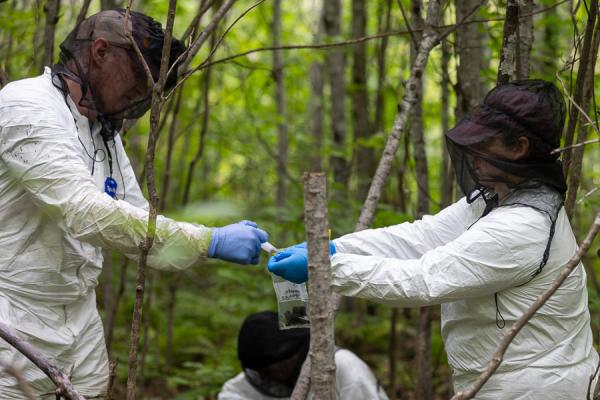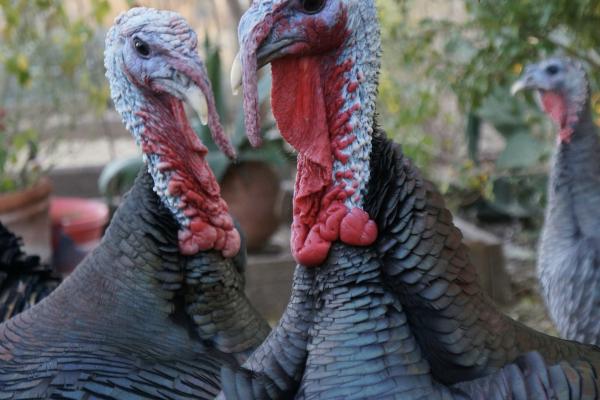Research roundup: Understanding zoonotic health inequities on Minnesota Indian reservations
December 6, 2021

At any given time, more than 1 million people around the world are infected with Echinococcus spp., a type of zoonotic parasitic tapeworm. Echinococcus infections are often both complicated and expensive to treat, and understanding how it spreads from the wild to humans is key to preventing infection. It is well understood that the parasites spill over into humans through contaminated soil or water—and through their pets. But unlike humans, dogs are asymptomatic when infected with echinococcus, which makes it difficult to detect before a human is infected. The parasites have also historically disproportionately affected Northern indigenous communities in North America.
In Northeastern Minnesota, moose and wolves are the natural hosts for Echinococcus spp. Ongoing wildlife studies on the Grand Portage Indian Reservation have found that nearly 100 percent of moose and 40 percent of wolves are infected. In a pilot study on the Grand Portage Indian Reservation, where both moose and wolves are common, 35 percent of domestic dogs were found to carry the parasite, which led to a study on zoonotic inequities in Northern Minnesota tribal communities.
For the new study, researchers with the University of Minnesota College of Veterinary Medicine, the Grand Portage Band of Lake Superior Chippewa, the Red Lake Nation, Mille Lacs Band of Ojibwe, and the Leech Lake Band of  Ojibwe recently set out to determine how prevalent echinococcus is among dogs in several communities where dogs who traverse wild and domestic environments may be at higher risk of infection, and to better recognize how the relationship between people, wildlife, and dogs within Ojibwe culture may impact, and even reduce, risks for echinococcus transmission from pets to people.
Ojibwe recently set out to determine how prevalent echinococcus is among dogs in several communities where dogs who traverse wild and domestic environments may be at higher risk of infection, and to better recognize how the relationship between people, wildlife, and dogs within Ojibwe culture may impact, and even reduce, risks for echinococcus transmission from pets to people.
To start, they tested 83 dogs on the four tribal nations. Three dogs tested positive for echinococcus. The team also collected samples of rodents and scat from wildlife to determine how prevalent the parasite was among wildlife living on each reservation.
Next, they set out to better understand how pet behavior and care may influence transmission. Specifically, the team used a combination of focus groups and pet owner surveys to learn more about dogs and dog ownership on reservations and how that has changed over time. They also wanted to learn more about what opportunities dogs have to interact with wildlife, which could potentially expose them to the parasite. Past research has shown that when dogs roam freely, scavenge, or are fed uncooked scraps of harvested wildlife they are at an increased risk of becoming infected. This community engagement created new opportunities to share knowledge about dog health and how it interfaces with human health.
The researchers noted that further studies should examine the spillover potential of endemic zoonotic Echinococcus spp. in the region. Funding for the research was provided by the University of Minnesota’s Institute on the Environment, Consortium on Law and Values in Health, Environment & the Life Sciences, Academic Health Center Seed Grant, Grant-in-Aid, and the College.
Read more in the article published Sept. 10 in EcoHealth.


